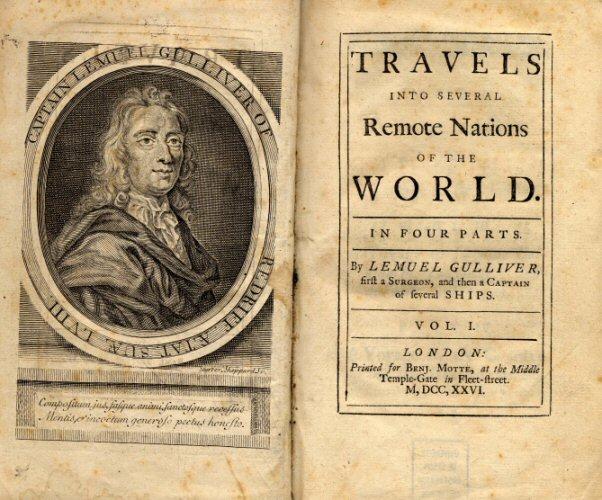
GULLIVER'S TRAVELS
The Egg
In Lilliput, great debate rages over which end of the egg should be cracked in order to eat it – the little end or the big end. The disagreement is rampant, and the long-ranging debate over which end to crack has led to division in the society, to a political uprising, and to the creation of an enemy across the bay. The Lilliputians are all forced to crack their egg on the small end, though many would prefer to crack theirs on the larger end.
The egg and how it is cracked are symbols for the many issues on which man will argue and debate. Instead of allowing each person to crack their egg the way they prefer, the Lilliputians believe there is only one right way – a fault that human societies and those in power often have. Swift uses the egg to create a satirical comment on England and Europe and what small, often petty topics can cause divisions in relationships between nations.
Clothes
Throughout his journey, Gulliver pays a great deal of attention to clothes and attire of those that he visits. But his own clothes are also a symbol that Swift uses to demonstrate Gulliver's journey both physically and mentally. In Lilliput, Gulliver's clothes begin to deteriorate, as does his opinion of the people he is vi
siting. They attempt to repair his clothes, but the damage is inevitable; he is simply too large and his clothes too massive, just as his own morality and understanding are larger than those of the small people.
In Brobdingnag, his clothes become a symbol of his captivity. He is forcibly dressed in whatever Glumdalclitch puts him in or whatever will reasonably fit him. His clothes are forcibly removed at one point as he is examined head to toe. He is subjugated to their whims, including what clothes he wears.
Then on his final voyage, when he is rescued by the Portuguese, he is wearing animal skins. He is offered clothes, the symbol of the human society he is returning to, but he refuses. The refusal of human clothing is symbolic of his refusal of his own kind; he is now too changed to put back on the "cloak" of his own society.